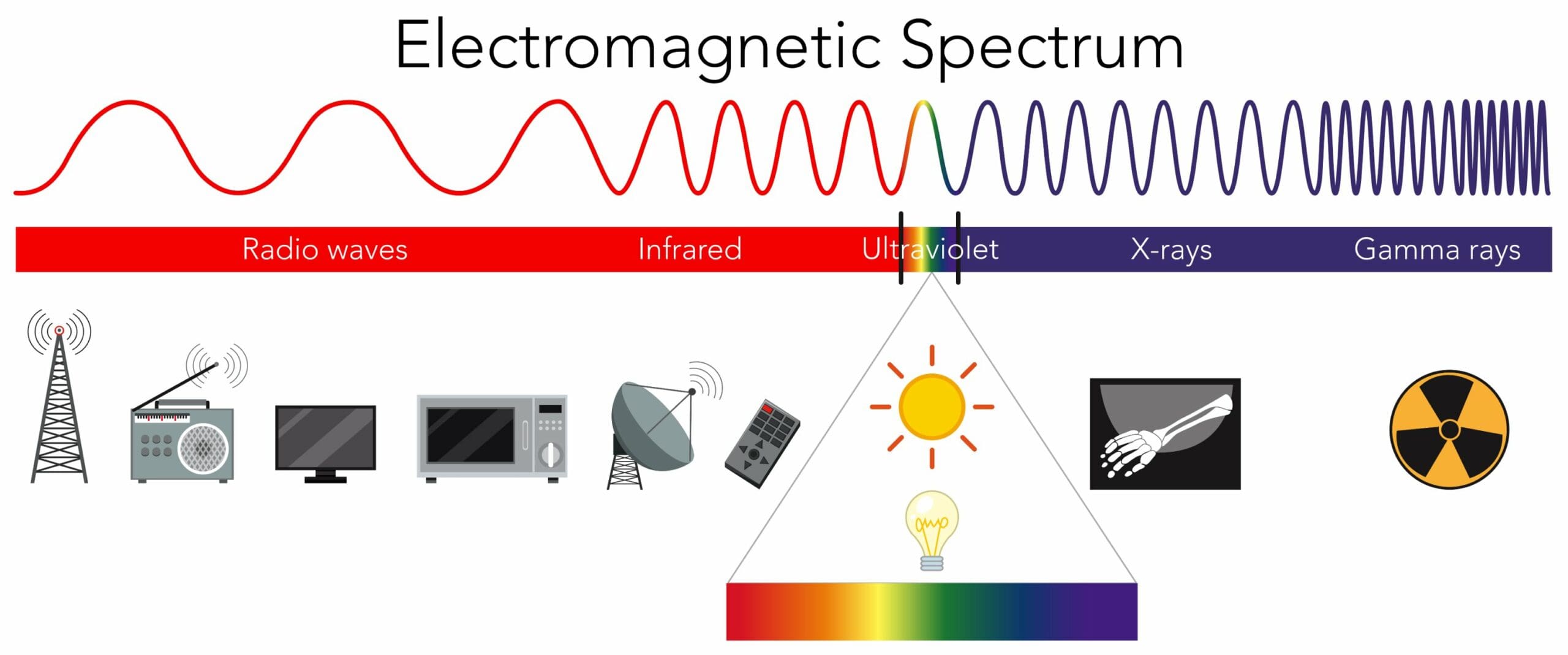Who is credited with being the first to use a telescope for astronomical observations?
Galileo Galilei
What is the angle of Earth's axial tilt?
23.5 degrees
Neil Armstrong
What is the difference between the geocentric and heliocentric model? Which one is correct?
The geocentric model places Earth at the center of the universe, while the heliocentric model places the Sun at the center. The heliocentric model is correct.
What is the difference between a asteroid, meteor, and comet?
An asteroid is a rocky object in space, a meteoroid is a fragment of an asteroid or comet, and a comet is an icy body with a tail that orbits the Sun.

As frequency increases, wavelength _________
decreases
How long does Earth take to rotate once on its axis? How long does it take to orbit the Sun?
Axis- 24hrs
Sun- 365 days
A Mars-sized object collided with Earth and the debris from this impact eventually came together to form the Moon.
What is the term for the early, small bodies that collided to form planets?
Planetestimals
What is the difference between a meteor, meteorite, and meteoroid?
A meteoroid is in space, a meteor is the streak of light seen when entering the atmosphere, and a meteorite is what hits Earth.
What are the two main types of telescopes, and which one uses mirrors while the other uses lenses?
Lenses- Refractor
Mirror- Reflector
Which season and event occur on December 21st when the Sun is directly over the Tropic of Capricorn?
Winter Solstice
What are the dark and light areas on the Moon called?
Dark- Maria
Light- Highlands
How were the planets distributed throughout the solar system when the sun formed?
Terrestrial (rocky) planets formed close to the Sun, while gas giants formed farther away.
How is the Kuiper belt different from the asteroid belt?
The Kuiper Belt is located beyond Neptune, while the Asteroid Belt is located between Mars and Jupiter.

What is it called when a star or object is moving toward you (Doppler Effect)?
Blueshifted
What is the difference between a solstice and an equinox?
A solstice is the longest or shortest day due to Earth's tilt; an equinox has equal day and night.
What do the terms "waning" and "waxing" mean when referring to the Moon's phases?
Waning- Moon's surface becoming darker
Waxing- Moon's surface becoming lighter
List the planets in order from the closest to the Sun to the farthest.
Mercury, Venus, Earth, Mars, Jupiter, Saturn, Uranus, Neptune
What are the three criteria that dwarf planets don't meet to be classified as planets?
Orbits the Sun
Sufficient Mass & Shape (Circular)
Cleared Its Orbit

Why two elements make up this mystery star?
Calcium & Iron
What does each point resemble inthe diagram? 
A- Summer Solstice
B- Fall Equinox
C- Winter Solstice
D- Spring Equinox

Name the moon phases staring from the end of the arrow.
Full Moon, Waning Gibbous, Third(Last) Quarter, Waning Crescent, New Moon, Waxing Crescent, First Quarter, Waxing Gibbous
Describe the theory for how our solar system formed.
Our solar system formed from a gas and dust cloud called a nebula. Gravity caused it to collapse into a spinning disk, with the Sun forming at the center. The remaining material clumped together to create planets, moons, and other objects, shaping the solar system we know today.
What are Kepler's Three Laws?
First Law: Gravity causes planets to follow elliptical orbits.
Second Law: Gravity makes planets speed up near the Sun and slow down farther away.
Third Law: Gravity determines orbital periods, so distant planets take longer to orbit.